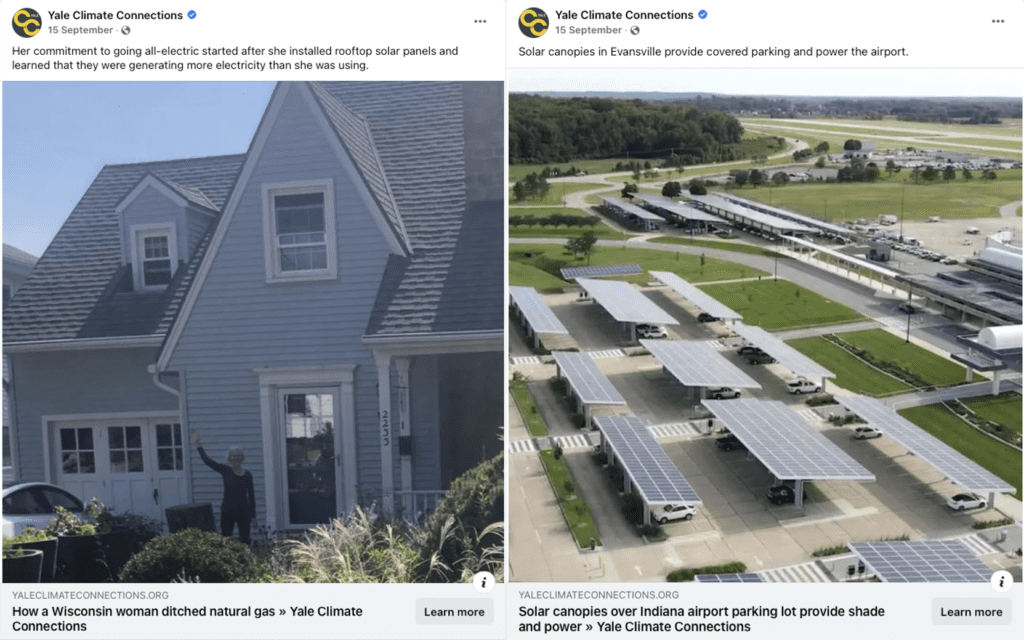Peer-Reviewed Article · Feb 6, 2025
Predicting the performance of climate change Facebook ads
By Matthew Goldberg, Miriam Remshard, Francis Commerçon, Jon Ozaksut, Sanguk Lee, Seth Rosenthal and Anthony Leiserowitz

We are pleased to announce the publication of a new article, “Predicting the performance of Facebook advertisements about climate change using self-report data” in the journal Environmental Communication.
Social media has become a critical medium for the communication of climate change. However, it is challenging to study the effectiveness of climate change communication on social media platforms like Facebook. Studying people’s interactions (e.g., likes, shares, etc.) on social media can provide important insights, but without the power of a controlled lab test and with very limited information about the end user. On the other hand, a survey can control what participants see and collect individual-level data (e.g., time spent on page) and other important variables.
But the results observed in a survey may not match people’s actual behavior on social media. In this study, we investigated how well participants’ self-reported behavior on a survey matches what participants do on Facebook.
We surveyed 1,015 people about 75 different Facebook posts and asked how likely they would be to click on or share the post. We separately advertised all 75 posts on Facebook, and measured their actual click and share performance. All posts consisted of a headline and a related picture and linked to a news story produced by Yale Climate Connections, our climate news service. Two example posts are shown below.

We found that a 10 percentage point increase in survey participants’ self-reported likelihood of sharing a post predicted 55% more actual shares on Facebook. Further, a 10 percentage point increase in survey participants’ perceptions that the post would be interesting to others predicted 86% more shares on Facebook. We also found that posts that evoked either a strongly positive or negative emotional response were shared more often than emotionally-neutral posts.
Overall, this study shows that, even if self-reported survey data is an imperfect approximation of how people actually behave on social media, it has significant advantages and insights to offer.
The full article with many other results is available here to those with a subscription to Environmental Communication. If you would like to request a copy of the published paper, please send an email to climatechange@yale.edu with the subject line: Request Predicting Ad Performance paper. Or, a public version is available here.